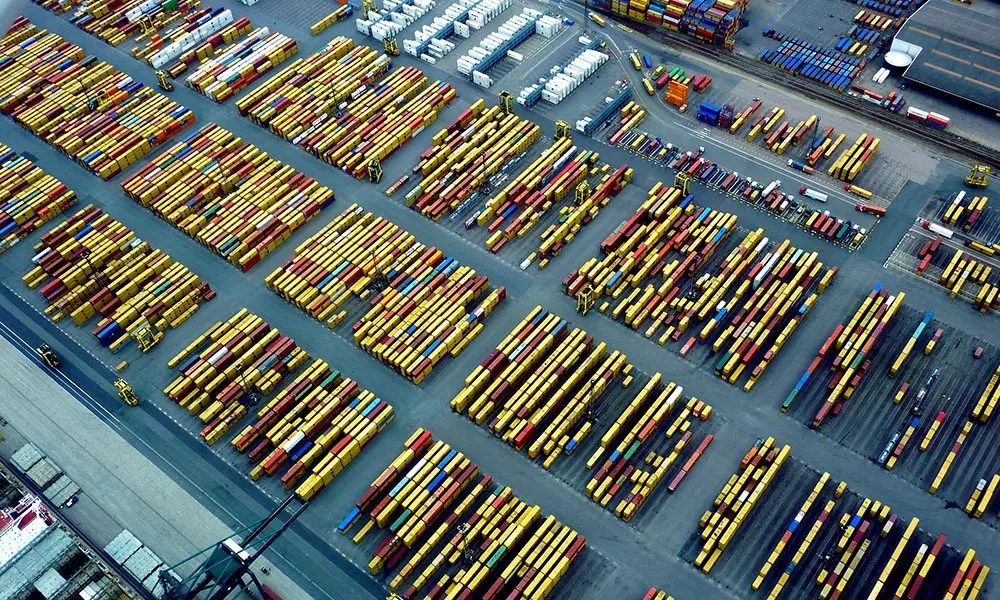How to Build a Customer-Centric Supply Chain

The pandemic has shown how vulnerable our supply chains are. A small interruption can bring a supply chain to a halt, which in today’s fast-paced world, is simply not acceptable. Customers are always expecting their product to arrive on time when ordered, and any delay in the supply chain can have significant consequences for organisations.
What today’s supply chains require is speed, agility and flexibility to respond quickly to changes in demand. The pandemic has shown us that demand and requirements can change rapidly, and those organisations that were not able to easily switch their products from geographically distributed stores to centralised warehouses for online orders missed out significantly.
Moving from Doing Digital to Being Digital
To avoid these problems, supply chains have to go digital. This does not mean merely doing digital, as in having your inventory in the cloud, but it means being digital. When you are digital, as an organisation or a supply chain, it offers new opportunities. It provides the speed, agility and flexibility that today’s fast-changing world requires.
Being digital means moving your entire supply chain to the cloud. It means enabling your customers to connect with you via any channel at any time. It also means hiring not only humans but also machines to improve your processes. When you move from doing digital to being digital, you enable human-to-machine collaborations that will bring great results.
This week, I attended Manhattan Exchange 2020, and they shared great stories on how they help organisations turning their supply chain digital. During the completely virtual event, they shared tons of customer stories, including those of L’Oréal, DIESEL and Skechers, showing that their customers can manage complex networks of billions of products moving seamlessly to market using an omnichannel strategy.
Cloud Solutions are the Way Forward for Supply Chains
Intelligent cloud solutions are the way forward, and they can add significant value. It gives organisations and supply chains the required speed, flexibility and scalability. A cloud environment enables greater collaboration as it gives companies the ability to share data more easily compared to non-cloud environments. Product and customer data can be quickly shared across locations and external collaborators.
The Italian retail clothing company DIESEL was able to move its logistics to the cloud. This transformation gave them full control over their eCommerce operations and customer care, offering customers a seamless shopping experience.
Improving Customer Care
An intelligent cloud environment will also result in improved customer care. In today’s world, your customers’ expectations should be leading in how you design your supply chain. Technology can help you achieve a customer-centric supply chain, where each of your customers has a personalised experience when interacting with your products.
Of course, if you sell billions of products per year, this is a major challenge. The French personal care company L’Oréal knows all about how to do this correctly. It is the world’s largest cosmetics company. The company consists of 4 division, 500 brands, of which 36 iconic brands and thousands of products. They have 150 distribution warehouses across the world. With so many products and customers, they need to be able to meet peak demands, especially when the world moved to online shopping earlier this year.
During the event, L’Oréal shared their insights on how they will use Manhattan’s native cloud solution in their distribution centres. One of the benefits of Manhattan’s Active Warehouse Management solution is that it no longer requires updates as it is a version-less product. Therefore, L’Oréal expects to become more flexible and agile by digitalising its supply chain and operate more efficiently in their warehouses, which in the end will result in higher customer satisfaction.
Human-to-Machine Collaboration
While a digital environment helps to make your supply chain more agile and flexible, hiring not only humans but also machines will make your logistical processes more efficient and effective. That is why Skechers, a lifestyle and performance footwear company, heavily focuses on automation using machines. Especially due to the pandemic, the company had to scale up quickly and robots where the best approach to not only meet the demands but also save costs. Thanks to man and machine collaboration in their warehouses, Skechers can meet (peak) demands, urgent orders and ensure continuous customer satisfaction.
Even more, digital tools can also help make your warehouses safer in times of the pandemic. After all, warehouse worker safety should be a priority for any organisation. That is why Manhattan partnered with Zebra Technologies to ensure social distancing in narrow picking alleys within warehouses. Picking routes are adapted continuously to avoid congestions and queues while offering employees proximity alerts—a great way how humans and machines can collaborate to ensure a safe environment.
Conclusion
Retailers around the world have to update and improve their supply chain processes continuously. Those companies that manage to ingest their supply chains with intelligence using native cloud solutions such as developed by Manhattan Associates prepare their business for tomorrow. It will enable them to bring products to market faster across the globe and redirect (return) products quickly when needed. This agility is essential as ‘even when the world stops turning, logistics never stops’, as stated by Sophie Houtmeyers, VP Distribution Operations Wallonia Skechers.
It was a great event, and I am looking forward to next year’s event to see how supply chains have changed due to this pandemic. I think those companies that can transform their logistics into digital platforms will benefit the most and will ensure customer loyalty.
This story is part of a campaign around Manhattan Exchange Connect, that took place on October 6, 2020.
Image: JumpStory






